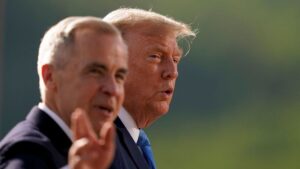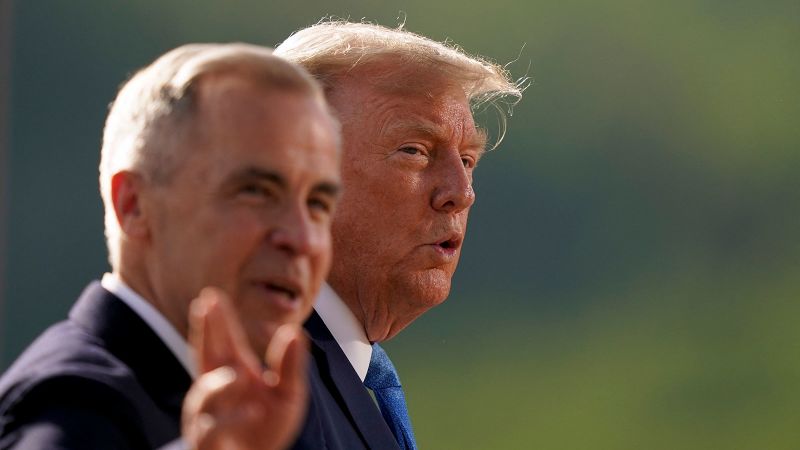On Sunday, Canada’s government made a significant announcement regarding its digital services tax (DST), signaling a strategic shift aimed at revitalizing trade discussions with the United States. This decision to rescind the tax comes in the wake of a trade landscape that has been strained due to various economic tensions, particularly those stemming from the policies of the former U.S. President, Donald Trump. The announcement is pivotal as it sets the stage for potentially restoring a more favorable trade relationship between the two countries.
The backdrop for Canada’s decision is a recent statement made by President Trump where he canceled trade negotiations, expressing vehement opposition to the digital services tax. He characterized the DST as “a direct and blatant attack on our Country,” indicating that such measures were perceived as harmful to U.S. companies operating in Canada. This confrontation over taxation on digital services reflects broader concerns about international trade and the competitive landscape for companies that operate online across borders.
In the statement issued late on the same day, the Canadian government emphasized its commitment to resuming negotiations with the United States. The Minister of Finance and National Revenue, the Honourable François-Philippe Champagne, highlighted that the decision to rescind the Digital Services Tax was made with the hope of moving toward a mutually beneficial trade agreement with the U.S. This strategic pivot illustrates Canada’s willingness to engage in diplomatic dialogue and seek compromise in areas of contention.
Moreover, as part of this renewed approach, it was noted that Prime Minister Carney and President Trump have agreed to resume negotiations with the objective of reaching an agreement by July 21, 2025. This timeline suggests an urgent interest on both sides to enhance economic collaboration and address trade barriers that have created friction in recent years.
Digital services taxes have emerged globally as countries look for ways to effectively tax online services provided by multinational corporations, which often operate in jurisdictions where they are not physically present. This is notably different from traditional taxation on physical goods and has become a contentious issue. From Trump’s perspective, the DSTs are categorized as “non-tariff trade barriers”; he claims they serve as tools for foreign nations to limit competition from American businesses, exacerbating trade disparities.
Interestingly, the Canadian DST was scheduled to commence on Monday, retroactive to the year 2022, illustrating the immediacy of the situation. The implications of this rescinded tax stretch beyond mere economic measures; they reflect a broader strategy to stabilize Canada-U.S. trade relations, which have been significantly impacted since Trump’s return to the presidency in January.
Trade figures underscore the importance of this relationship—Canada is recognized as the top buyer of American goods, with an impressive $349 billion worth of imports recorded last year. Conversely, Canada exported goods valued at $413 billion to the U.S., making it the third-largest source of foreign goods for the American marketplace. These numbers emphasize the critical interdependence between the two economies, highlighting why ongoing negotiations are necessary for both sides.
As events continue to unfold, the trade dynamics between Canada and the United States will likely remain a focal point, particularly given the economic stakes involved. Stakeholders from both nations will be closely monitoring these developments, eager to see how negotiations progress in light of this recent concession by Canada regarding its digital services tax.
In summary, as both nations strive to navigate the complexities of trade relations, this evolving narrative underscores the critical interplay between tax policy and international trade negotiations, setting the stage for future discussions that could reshape the economic landscape for both Canadian and American businesses. It is anticipated that further updates will emerge as efforts to reconcile differences continue.











